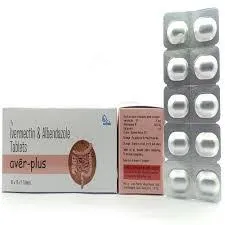- Afrikaans
- Albanian
- Amharic
- Arabic
- Armenian
- Azerbaijani
- Basque
- Belarusian
- Bengali
- Bosnian
- Bulgarian
- Catalan
- Cebuano
- Corsican
- Croatian
- Czech
- Danish
- Dutch
- English
- Esperanto
- Estonian
- Finnish
- French
- Frisian
- Galician
- Georgian
- German
- Greek
- Gujarati
- Haitian Creole
- hausa
- hawaiian
- Hebrew
- Hindi
- Miao
- Hungarian
- Icelandic
- igbo
- Indonesian
- irish
- Italian
- Japanese
- Javanese
- Kannada
- kazakh
- Khmer
- Rwandese
- Korean
- Kurdish
- Kyrgyz
- Lao
- Latin
- Latvian
- Lithuanian
- Luxembourgish
- Macedonian
- Malgashi
- Malay
- Malayalam
- Maltese
- Maori
- Marathi
- Mongolian
- Myanmar
- Nepali
- Norwegian
- Norwegian
- Occitan
- Pashto
- Persian
- Polish
- Portuguese
- Punjabi
- Romanian
- Russian
- Samoan
- Scottish Gaelic
- Serbian
- Sesotho
- Shona
- Sindhi
- Sinhala
- Slovak
- Slovenian
- Somali
- Spanish
- Sundanese
- Swahili
- Swedish
- Tagalog
- Tajik
- Tamil
- Tatar
- Telugu
- Thai
- Turkish
- Turkmen
- Ukrainian
- Urdu
- Uighur
- Uzbek
- Vietnamese
- Welsh
- Bantu
- Yiddish
- Yoruba
- Zulu
Dec . 16, 2024 13:21 Back to list
IVERMECTIN Injection Use and Benefits for Equine Health and Parasite Control
Ivermectin Injection in Horses An Overview
Ivermectin is a widely recognized antiparasitic medication that has been employed in veterinary medicine for several decades, particularly in the treatment of equines. This powerful drug is effective against various internal and external parasites that commonly afflict horses, making it a staple in equine healthcare. Understanding the applications, dosage, and safety of ivermectin injection in horses is essential for horse owners and veterinarians alike.
What is Ivermectin?
Ivermectin belongs to a class of medications known as avermectins, which are derived from naturally occurring compounds produced by the bacterium *Streptomyces avermitilis*. It works by interfering with the nerve and muscle function of parasites, ultimately leading to their paralysis and death. Ivermectin is effective against a range of parasites, including roundworms, bots, and ectoparasites like lice and mites. This broad-spectrum efficacy makes it an invaluable tool for maintaining the health and wellness of horses.
Forms of Administration
Ivermectin is available in various forms, including oral pastes, tablets, and injectable solutions. While oral formulations are most commonly used due to their ease of administration, ivermectin injections are critical for specific situations, especially in cases where oral dosing may not be feasible or effective due to the horse’s health condition or other complications.
Injectable ivermectin can be particularly beneficial for treating large infestations or for horses that have difficulty swallowing oral medications. Additionally, it may be used in horses that require rapid treatment or for those that cannot tolerate oral formulations due to gastrointestinal issues.
Dosage and Administration
ivermectin injection in horse

The appropriate dosage of ivermectin injection can vary based on the horse’s weight, the specific type of parasites being treated, and the formulation of the drug. It is crucial to follow the veterinarian’s recommendations strictly. Dosage is generally determined based on the horse’s body weight; a common guideline suggests using a dosage of approximately 200 micrograms per kilogram of body weight. However, careful calculations are necessary to ensure accurate dosing, as under-dosing can lead to ineffective treatment, while overdosing can have adverse effects.
Ivermectin injections are typically administered intramuscularly (IM) or subcutaneously (SC). Horse owners should be aware of proper injection techniques to minimize discomfort and reduce the risk of abscess formation at the injection site. Cleaning the area before injection and using sterile equipment are critical steps in ensuring the safety and efficacy of the treatment.
Safety and Side Effects
Ivermectin is generally regarded as safe for horses when used according to veterinary guidelines. However, as with any medication, there can be side effects. Common side effects are mild and may include swelling or tenderness at the injection site, mild lethargy, or transient gastrointestinal upset. Severe reactions are rare but can occur, particularly in horses that are sensitive or allergic to the drug. Therefore, it is important to monitor horses closely after administration.
Furthermore, horse owners must ensure that ivermectin is used responsibly, especially concerning concerns about environmental impact and the development of resistance among parasites. Adhering to recommended dosages, rotating dewormers, and scheduling regular veterinary check-ups can help mitigate these risks.
Conclusion
In summary, ivermectin injection is a vital component of equine health care, providing effective treatment for a range of parasitic infections. Proper understanding of its use, along with careful attention to dosage and administration, can ensure the health and well-being of horses. As with any veterinary medication, collaboration with a veterinarian is essential for developing an effective treatment plan tailored to the individual horse’s needs. By prioritizing responsible use, horse owners can help maintain the efficacy of ivermectin and protect their equine companions from parasitic infestations.
-
Guide to Oxytetracycline Injection
NewsMar.27,2025
-
Guide to Colistin Sulphate
NewsMar.27,2025
-
Gentamicin Sulfate: Uses, Price, And Key Information
NewsMar.27,2025
-
Enrofloxacin Injection: Uses, Price, And Supplier Information
NewsMar.27,2025
-
Dexamethasone Sodium Phosphate Injection: Uses, Price, And Key Information
NewsMar.27,2025
-
Albendazole Tablet: Uses, Dosage, Cost, And Key Information
NewsMar.27,2025













